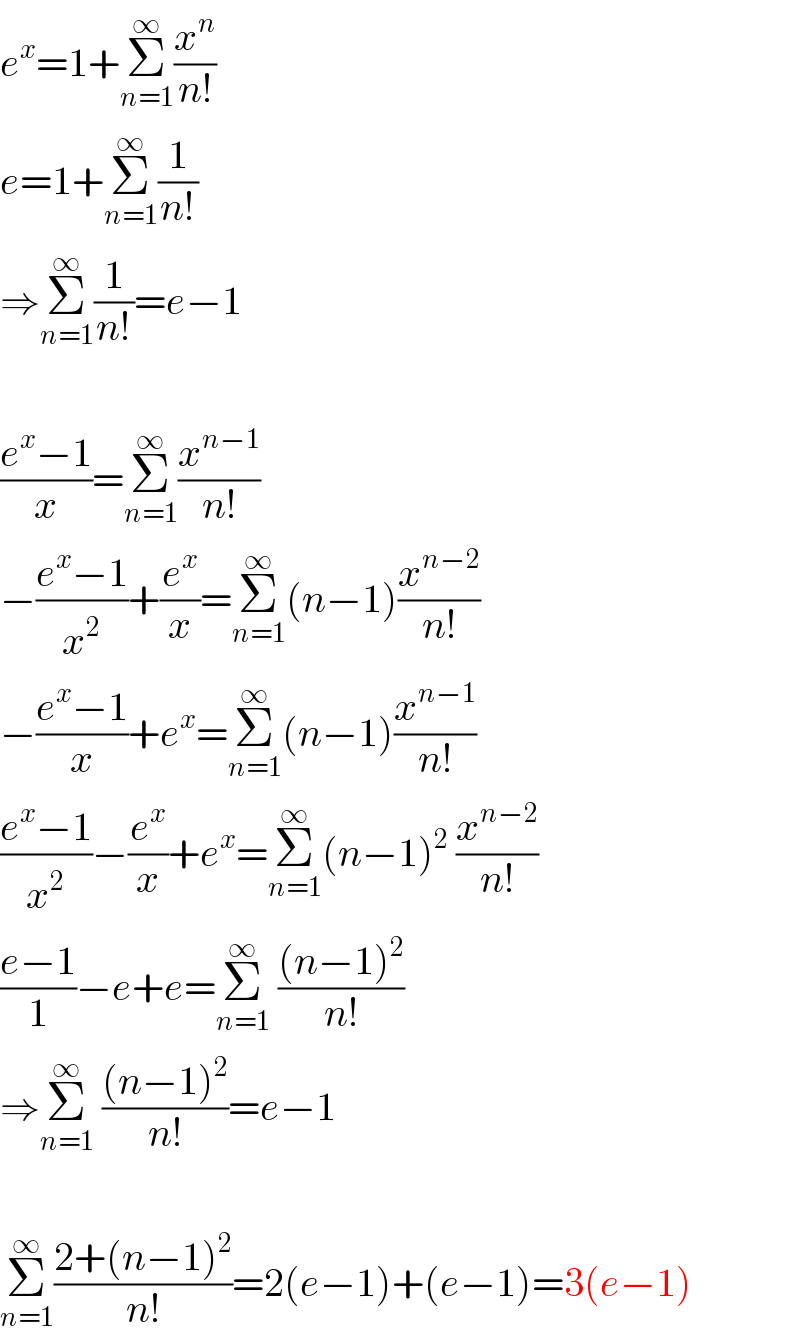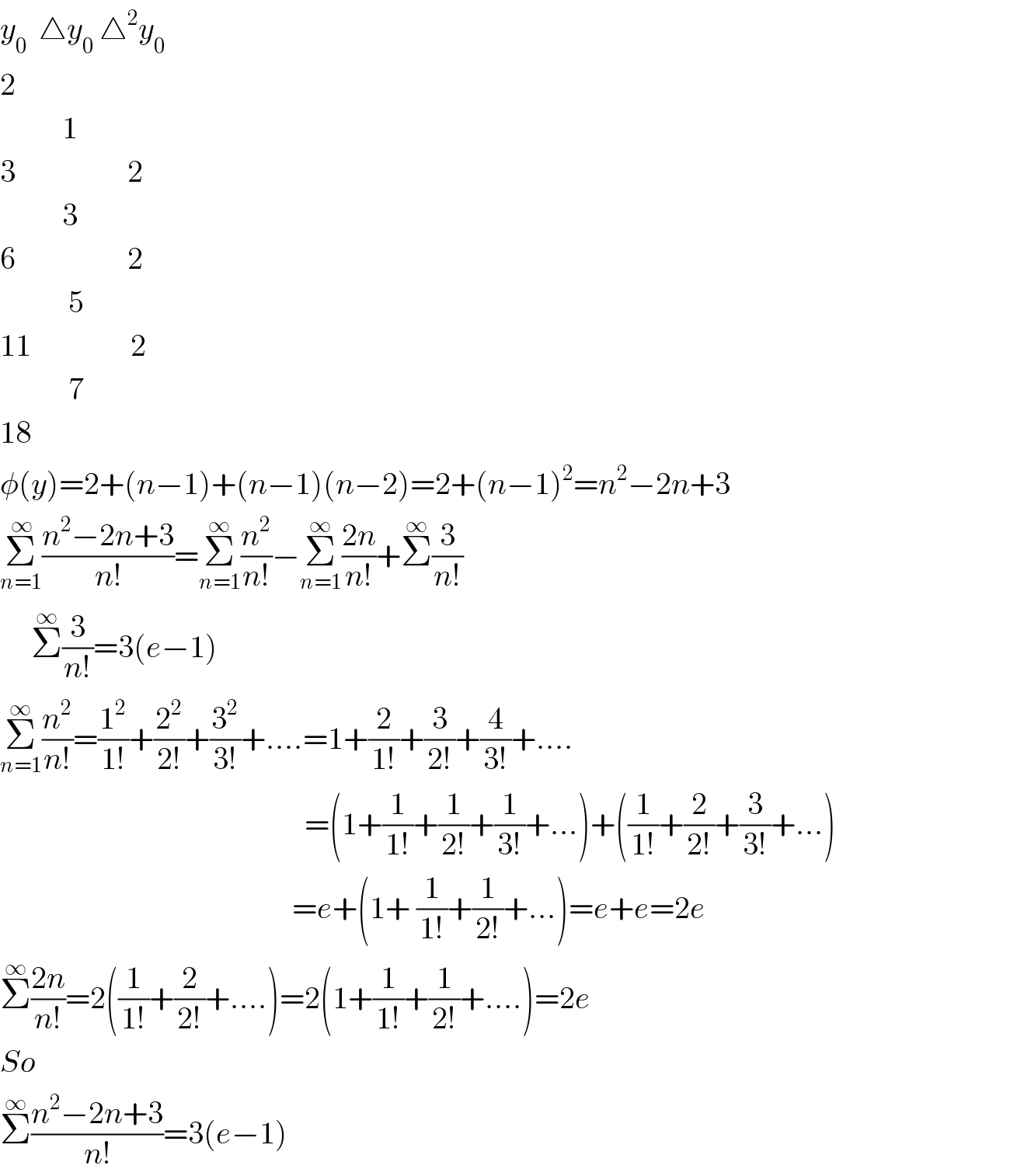
Question and Answers Forum
Question Number 108571 by Dwaipayan Shikari last updated on 17/Aug/20

Answered by mr W last updated on 17/Aug/20

Commented by ajfour last updated on 17/Aug/20

Commented by Dwaipayan Shikari last updated on 17/Aug/20

Answered by Dwaipayan Shikari last updated on 17/Aug/20

Commented by Dwaipayan Shikari last updated on 17/Aug/20

